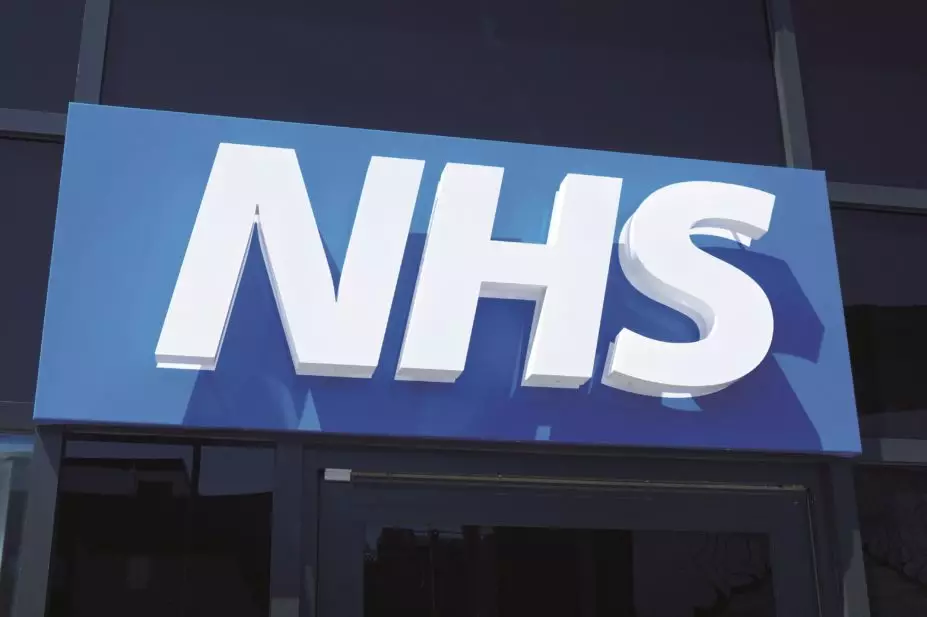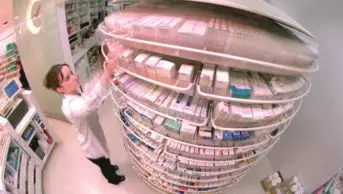
CBsigns / Alamy
NHS England has launched an investigation into “extremely serious allegations” made in a Daily Telegraph report that highlights the practice of health officials being paid to advise pharmaceutical companies on the NHS use of their products.
An undercover reporter for The
Daily Telegraph recorded Paul Jerram, head of medicines management at the Isle of Wight clinical commissioning group (CCG), explaining how he had arranged an advisory board meeting in Baden-Baden, Germany.
According to the report, Jerram said each delegate was paid £500 a day, while he and an associate were paid £5,000 to organise the meeting, which he suggested had led to guests switching to the pharmaceutical company’s product. He has since been suspended while the CCG investigates the claims.
“These are extremely serious allegations, potentially involving criminal actions, so we have immediately directed NHS Protect — working in partnership with the police wherever necessary — to launch a full investigation,” says a spokesperson for NHS England. The spokesperson also questioned whether legislation is needed to require full disclosure of any payments made by a pharmaceutical or medical device company to a health professional or NHS employee.
Omar Ali, a pharmacist who worked part time for Surrey and Sussex NHS Trust, was also caught on camera discussing his role in organising advisory board meetings for drug companies. In one of the videos Ali appears to agree that his fee for organising an advisory board meeting is £15,000.
Surrey and Sussex NHS Trust chief executive Michael Wilson says the trust is launching a full investigation with NHS Protect, the body responsible for looking into crime in the health service. He said that Ali, who resigned on 23 July 2015, had correctly declared his independent business with them.
Ali refutes the suggestion that he was paid £15,000 to organise board meetings: “Over 95% of my advisory boards have been charged at rates between £2,000 and £5,000, and from those I have to pay staff and cover all of the associated administrative costs,” he says, adding that he has never allowed his NHS work to be influenced by his consultancy work.
“I believe passionately in the NHS and what it stands for. A vital part of its work is delivering excellent care and that necessarily involves wholly engaging with commercial organisations to ensure patients can benefit from the newest medicines and health technologies available.”
Stirling Anglian Pharmaceuticals, the company mentioned in The Daily Telegraph report, says it “has, and will always endeavour to interact with colleagues in a manner compatible with the Association of the British Pharmaceutical Industry’s (ABPI) code of practice for the pharmaceutical industry”.
It says it has set up a number of advisory boards — paying members £500 a day to provide their expertise in their spare time, as well as covering the cost of flights — but that the company did not fund hotel accommodation or entertainment. “Accommodation at the hotel nearest to the factory, which is a straightforward business hotel costing £140 per night, and an evening meal were provided by the manufacturers [used by the company],” says a spokesperson for Stirling.
The Daily Telegraph named a number of individuals, including pharmacists, who it said had attended board meetings from the following NHS organisations: North West Surrey CCG; Southern Health NHS Foundation Trust; Hillingdon CCG; Rotherham CCG; Luton CCG; Newark and Sherwood CCG; Herts Valleys CCG; Brighton and Hove CCG; and Surrey Downs CCG.
The named NHS organisations say they have strict policies that require staff to declare conflicts of interest and that no decision on medicines switches could be made by an individual, with some pointing out that no changes to the formulary had been made following the trip.
James Blythe, director of commissioning and strategy at Surrey Downs CCG, points out that it is not uncommon for pharmaceutical companies to engage pharmacists and other NHS experts in the research and development phase for new products.
A spokesperson for Luton explains the value of advisory board meetings: “Advisory boards are a useful way for pharmacy professionals to network to get industry and senior healthcare professionals’ opinions on current and future pathways and treatments.” The spokesperson adds that there was no expectation that board members would recommend the use of any product discussed: “If the CCG considers that any product offers better value for the public for the NHS to use, then this will be considered by the prescribing committee — it seems illogical not to.”
In addition, Ali says the boards can ensure pharmaceutical companies focus on supplying products that are of relevant value to the NHS and that they address unmet needs. “The valuable insight from advisory boards has often resulted in pharmaceutical companies reducing their prices,” he adds.
Responding to the media reports, the Royal Pharmaceutical Society (RPS) says all decisions on the use of medicines need to be open to scrutiny and a clear rationale given.
“The RPS is keen to see a swift roll out of the proposed ‘disclosure of payments’ system by the pharmaceutical industry,” it adds.
Virginia Acha, the ABPI’s executive director of research, medical and innovation, says it is crucial that the pharmaceutical industry works with healthcare professionals within the code of practice.
- This article was amended on 31 July 2015 to make clear that Stirling Anglian Pharmaceuticals (SAP) did not host the trip mentioned in The Daily Telegraph report. SAP worked with a consultancy firm JTRx, which organised the trip on its behalf.

